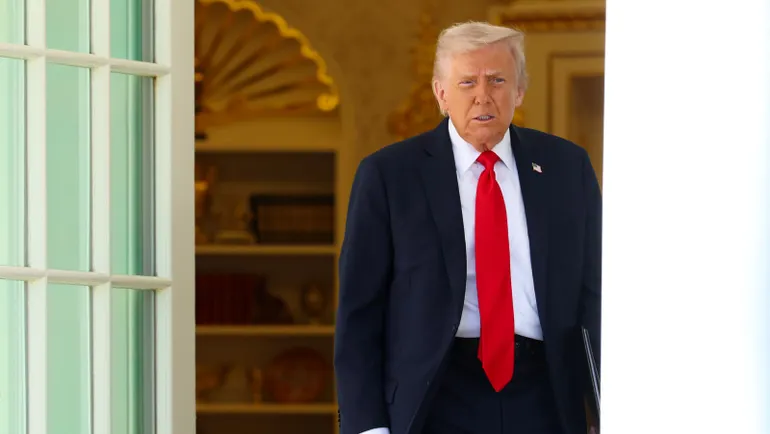
This sound is generated automatically. Please let us know if you have any feedback.
The United States is reviewing China’s adherence to a 2020 trade deal between the two countries that reduced tariffs during Donald Trump’s first term.
On Friday, the U.S. Trade Representative opened a Section 301 investigation to determine whether China has stalled the end of a “phase one agreement” signed in January 2020, according to a Federal Register filing.
Based on the investigation, the USTR will investigate whether US rights under the agreement have been violated or whether any actions by China have violated its provisions. The agency will also consider implementing retaliatory measures such as new tariffs or import restrictions.
The initial phase one agreement was reached after a multi-year trade dispute between the two countries that resulted in increased tariffs.
In the treaty, the United States agreed to cut tariffs on $120 billion in imports from China while increasing exports by $217 billion compared to 2017. However, the pact did not reduce other tariffs in place at the time, including some Section 301 tariffs that were later expanded by the Biden administration and remain in place today.
Meanwhile, China announced it would reduce tariffs on 850 products from all countries while increasing imports of American goods. In Friday’s filing, the USTR said China had defaulted on its import obligations from the US by more than $200 billion based on unclear export data.
“Despite U.S. engagement with China to address these enforcement concerns over the past five years, China appears to have failed to meet its obligations under the Phase One Agreement, including those related to IP, forced technology transfer, agriculture, and financial services,” the filing said.
USTR will hold a hearing as part of the investigation process on December 16 and is accepting public comments and requests to attend the hearing until December 1. Shareholders can start submitting comments from October 31.
During the comment period, the USTR will seek information on China’s implementation of the provisions of the 2020 Agreement, as well as recommendations for actions the Trump administration should take in response.
The investigation is a fresh blow to deteriorating trade relations. The two countries are at loggerheads again after the U.S. and China agreed to stop raising tariffs after tensions escalated this spring.
Earlier this month, Trump said he would impose new 100 percent tariffs on Chinese imports in response to Beijing’s planned implementation of export controls on rare earths. According to Trump, the new duties are scheduled to begin on November 1.
However, Trump and Chinese President Xi Jinping are scheduled to meet next week during the Asia-Pacific Economic Cooperation summit in Seoul, South Korea, White House spokeswoman Carolyn Leavitt said at a news briefing on Thursday.